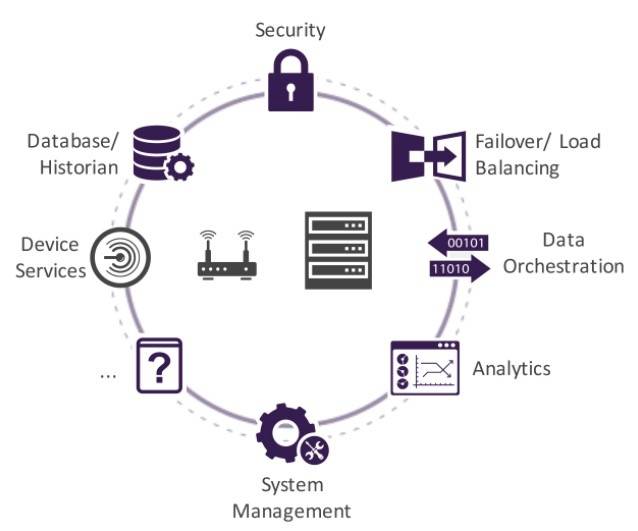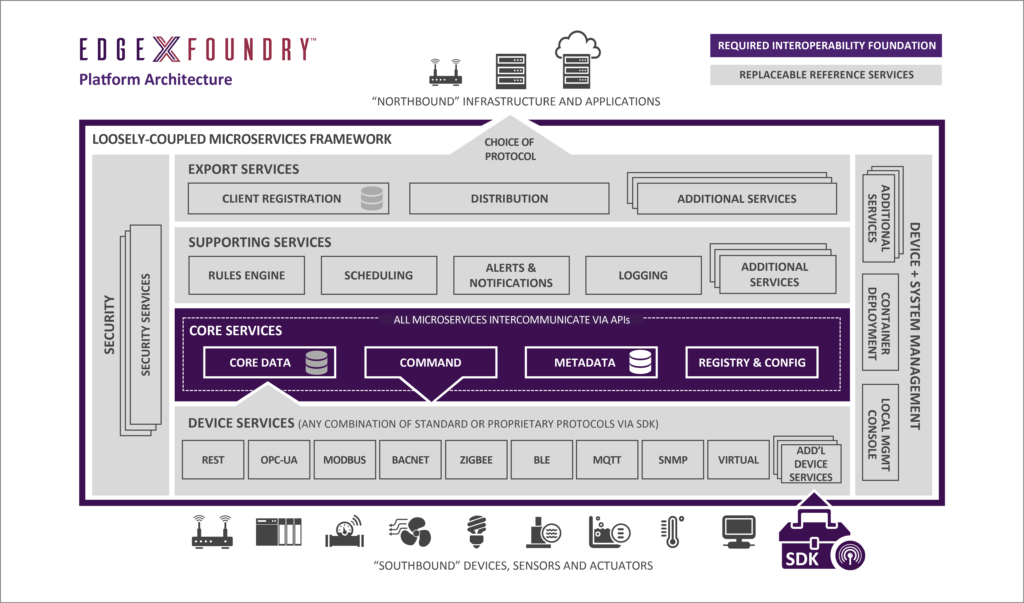The Linux Foundation this week announced the launch of EdgeX Foundry at Hanover Messe, an open source project to build a common open framework for IoT edge computing and an ecosystem of interoperable components that unifies the marketplace and accelerates enterprise and Industrial IoT. The initiative is aligned around a common goal: the simplification and standardization of industrial IoT edge computing, while still allowing the ecosystem to add significant value.
See also: Linux’ Torvalds surprised by IoT uptake
IoT is delivering significant business value by improving efficiencies and increasing revenue through automation and analytics, but widespread fragmentation and the lack of a common IoT solution framework are hindering broad adoption and stalling market growth. The complexity of the current landscape and the wide variety of components creates paralysis. EdgeX endeavors to solve this by making it easy to quickly create IoT edge solutions that have the flexibility to adapt to changing business needs.
“Success in Internet of Things is dependent on having a healthy ecosystem that can deliver interoperability and drive digital transformation,” said Jim Zemlin, Executive Director of The Linux Foundation.
“EdgeX Foundry is aligning market leaders around a common framework, which will drive IoT adoption and enable businesses to focus on developing innovative use cases that impact the bottom line.”
Unifying the IoT market
EdgeX Foundry is intent upon unifying the marketplace around a common open framework and building an ecosystem of companies offering interoperable plug-and-play components. Designed to run on any hardware or operating system and with any combination of application environments, EdgeX can quickly and easily deliver interoperability between connected devices, applications, and services, across a wide range of use cases. Interoperability between community-developed software will be maintained through a certification program.
Founding members include: Advanced Micro Devices (AMD), Alleantia, Analog Devices, Bayshore Networks, Beechwoods Software, Canonical, ClearBlade, CloudPlugs, Cloud of Things, Cumulocity, Davra Networks, Dell, Device Authority, Eigen Innovations, EpiSensor, FogHorn Systems, ForgeRock, Great Bay Software, IMS Evolve, IOTech, IoTium, KMC Controls, Kodaro, Linaro, MachineShop, Mobiliya, Mocana, Modius, NetFoundry, Neustar, Opto 22, relayr, RevTwo, RFMicron, Sight Machine, SoloInsight, Striim, Switch Automation, Two Bulls, V5 Systems, Vantiq, VMware and ZingBox. Industry affiliate members include: Cloud Foundry Foundation, EnOcean Alliance, Mainflux, Object Management Group, Project Haystack and ULE Alliance.Apache
Collaborating with other IoT efforts
Dell is seeding EdgeX Foundry with its FUSE source code base under Apache 2.0. The contribution consists of more than a dozen microservices and over 125,000 lines of code and was architected with feedback from hundreds of technology providers and end users to facilitate interoperability between existing connectivity standards and commercial value-add such as edge analytics, security, system management, and services.
This is complemented by the recent merger of the IoTX project into the EdgeX effort, which was previously supported by EdgeX Foundry members including Two Bulls and Beechwoods Software, among others. Additional supporting code contributions by EdgeX members are already underway.
“We think EdgeX Foundry is the key to accelerating the fragmented IoT market and are proud to have been a part of the effort from the beginning,” said Jason Shepherd, IoT Strategy and Partnerships, Dell.
“We’re big believers in openness and choice, and this modular architecture is designed to help anyone easily build edge computing solutions with preferred hardware, software, standards and services while minimizing reinvention. EdgeX Foundry is not a new standard, but a way to unify standards and edge applications.”
EdgeX Foundry is collaborating with relevant open source projects, standards groups, and industry alliances to ensure consistency and interoperability across the IoT. Those interested can become involved in the community, to participate in discussions, get the latest news and search report and review bugs within the EdgeX database.


















